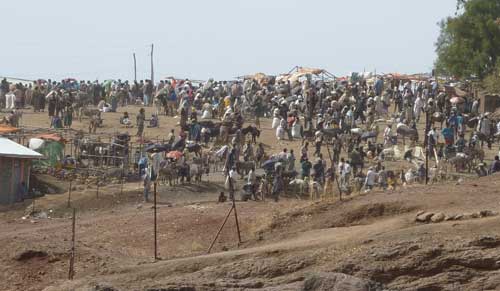Yesterday at church we participated in a slum life simulation game facilitated by Tear Australia. In the game our family had to make paper bags to a good standard and sell them to shopkeepers in order to earn money to live off.
During the course of the game our house burnt down and we had to move to a new house. One of our children contracted measles and we had to pay for her to go to the doctor in order to survive.
We needed to make enough money to pay our rent, buy our food etc. It was expected that by the end of the game we should have earned enough money to send a daughter to school, which we were able to do. We did manage to survive, and managed to stay out of “under the bridge” which is where you had to go if you were evicted or didn’t have enough money to purchase food. We finished the game with only a pittance left over.
Through the game, I felt panicky. We needed to keep making bags in order to earn enough money to live off. In the first round, we did very well, making many more bags than the other families (those fine motor skills coming to the fore!). However, in subsequent rounds, when tragedies visited us, I kept wondering if we would be able to earn enough. Would our house burn down again? Would one or both of our children get sick? It was a constant struggle to keep our heads above water.
We debriefed at dinner last night, talking about how we felt during the game. My children are ages where they were really able to engage with the game. We discussed the sacrifice of sending a child who could be earning money, to school. While the game was set in an Indian slum, we remembered seeing such children when we lived in Ethiopia; children out earning money to support their families. Having lived in a “third world” country really helped us to see how yesterday’s game for us, is real life for some people.
It was a really valuable experience and one I would highly recommend to anyone. If you are in Australia, and would like to learn more about Tear Australia’s simulation games, they have a listing of all available games on their website.


 White Threads is the blog of Yvette Stanton, the author, designer, publisher behind Vetty Creations' quality needlework books and embroidery products.
White Threads is the blog of Yvette Stanton, the author, designer, publisher behind Vetty Creations' quality needlework books and embroidery products.

I often think about those living in less industrialized countries and their standard of living. We take many things for granted:nice firm mattresses, clean water on demand, and good health care for our children.
Thanks for sharing your experience.
Thanks Abbie. It has also crossed my mind a number of times that many people who live within my own country would experience that same level of anxiety about making ends meet. “How can I feed my family today?” “I can’t afford to see a doctor.” It doesn’t just happen in other countries.
Thank you for this post. I went to the website and it is marvellous.
I am always impressed by the resourcefulness of families living with political instability, unfair social hierarchy, and climatic disasters. One fact is that they frequently have family and friends in similar circumstances to talk with. Nevertheless the situations are often horrendous. The choice seems to be to die today or choose to die tomorrow.
I live in an Australian city where many people sleep in parks, on footpaths, or just anywhere while others pay hundreds of dollars a night for accommodation. Some choose alcohol instead of their children; some choose not to be tied down by houses or employment. All these people have choices and their lifestyle is not determined by the extreme poverty of some countries. Thank goodness we have Centrelink to catch some people, but it does not catch all.
There are many people in this country who are not able to visit a dentist or a doctor for a variety of reasons, including isolation. Services you take for granted do not reach far outside capital cities or even far outside the major cities of Sydney and Melbourne.